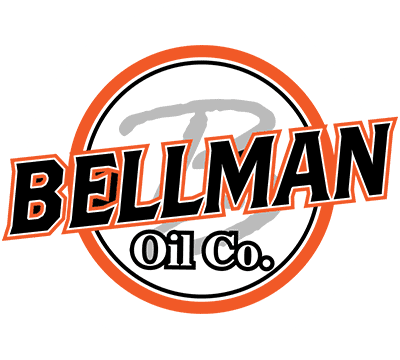Many commercial enterprises are reliant on vehicular transportation for operational success. Ensuring a fleet’s longevity, efficiency, and reliability is crucial to business outcomes. For businesses that manage commercial vehicle fleets, crafting an effective fleet maintenance program is a strategic imperative. It ensures the fleet can meet the company’s demands. Read on if your business wants to optimize your fleet maintenance program, creating a more reliable and cost-effective fleet!
Understanding the Basics of Fleet Maintenance
A fleet maintenance program aims to ensure the functionality and longevity of all vehicles within a commercial fleet. These programs include several types of maintenance that prevent breakdowns, maintain safety standards set by the Department of Transportation, and address routine wear and tear.
Preventative maintenance serves as the foundation of an effective fleet maintenance program, addressing potential issues ahead of time through scheduled inspections. Through a strategic maintenance schedule, fleet managers can minimize the likelihood of unexpected damage, optimize fuel efficiency, and extend the viability of their vehicles. Examples of preventative maintenance include oil changes, air filter changes, and tire rotation.
Beyond these scheduled maintenance tasks, effective fleet maintenance programs will also use predictive analytics to anticipate component failure or damage before it occurs. Predictive maintenance uses data-driven insights based on factors like equipment usage and the statistical lifespan of components to replace vehicle parts before they cause a significant problem. This maintenance prevents costly repairs beyond replacing the component and unplanned downtime, improving the fleet’s reliability. Though not ideal, reactive maintenance is still crucial to effective fleet maintenance. This kind of repair occurs when unexpected failures or damage occur to vehicles, necessitating immediate repairs and downtime. Fleet managers can use various strategies to streamline this process, reducing downtime and improving productivity.
Creating a fleet maintenance strategy offers numerous benefits to companies that manage commercial fleets. By reducing downtime and keeping vehicles in tip-top shape, these programs improve the fleet’s reliability, safety, cost-effectiveness, and lifespan, keeping the wheels rolling for the business.
Now that we’ve covered the basics of fleet maintenance, let’s explore some tips for creating an effective fleet maintenance program.
Conduct a Fleet Assessment
Before considering strategies for an effective fleet maintenance program, businesses must thoroughly assess their fleets and current maintenance practices. Compile a comprehensive list of all vehicles, including type and usage patterns. This data will help companies to identify appropriate maintenance schedules and predictive maintenance patterns.
Fleet managers should also examine their current maintenance strategies and performance metrics. By evaluating their current plan, fleet managers can identify areas that need improvement or more structure. Performance metrics, like maintenance records, mean time between failures, mean time to repair, and number of breakdowns, allow fleet managers to recognize trends and patterns in the data. This allows businesses to create targeted maintenance strategies.
Determine Maintenance Standards and Schedules
After thoroughly analyzing the fleet and maintenance practices, fleet managers should determine appropriate maintenance standards for the various vehicles in their fleet. Using manufacturer recommendations, usage patterns, and regulatory guidelines, fleet managers can establish effective preventative maintenance schedules tailored to each vehicle’s usage, type, and age. Preventative maintenance schedules should monitor the engine, oil, brakes, tires, suspensions, and fluid levels. They can be scheduled based on time intervals or mileage thresholds. These scheduled maintenance inspections can reduce downtime and prevent extensive damage, optimizing the efficiency and effectiveness of maintenance practices.
In the digital age, fleet managers can invest in fleet management software designed to automate maintenance scheduling and tracking. These systems can also monitor fuel efficiency remotely, allowing fleet managers to optimize fuel consumption and maintenance simultaneously.
Streamlining Maintenance Operations
Unfortunately, not all damage or failures can be anticipated. Reactive maintenance responds to unexpected vehicular failure, breakdowns, and damage, resulting in unforeseen costs and downtime. If unmanaged, downtime can significantly impact productivity and the bottom line. As part of an effective fleet maintenance program, fleet managers should streamline maintenance management, using one unified system for all maintenance activities.
This centralized approach streamlines communication, standardizes maintenance processes, and allows quicker fixes. In turn, this keeps vehicles out of the shop and on the road. With streamlined maintenance operations, one central department manages preventative and reactive maintenance measures, ensuring all vehicles receive the same level of attention.
Ensuring Fuel Efficiency
An important yet often overlooked part of fleet maintenance is fuel management. Fleet managers can integrate fuel management practices into fleet maintenance programs to optimize fuel efficiency and reduce excessive consumption. These scheduled maintenance activities can help managers identify and address issues related to fuel efficiency, including tire maintenance and engine tune-ups. These practices not only help fleets maintain working vehicles but also can reduce costs associated with fuel usage.
Call Bellman Oil Today!
Ultimately, creating an effective fleet maintenance program allows businesses to have a strategic edge over their competition, serving to improve productivity and reduce unexpected downtime. With Bellman Oil, fleet managers can create a technologically advanced fleet maintenance program focusing on fuel efficiency and cost-effectiveness. Reach out to Bellman Oil today to learn more about our remote monitoring technologies and fuel offerings!




